
Share this:
Books and Agents
Online Panel Discussion
9/09/21 6pm
Free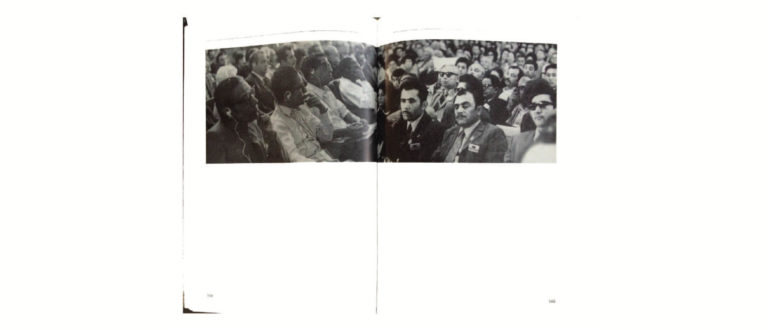
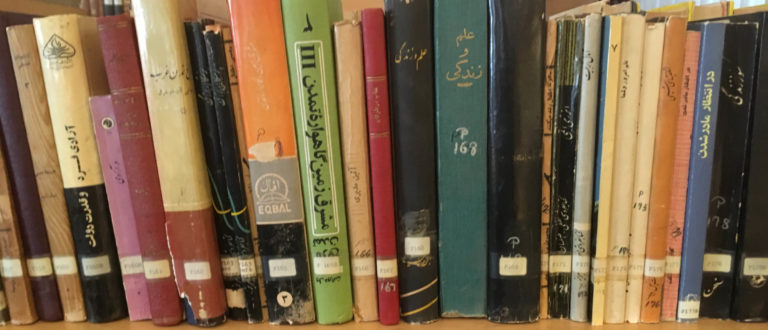
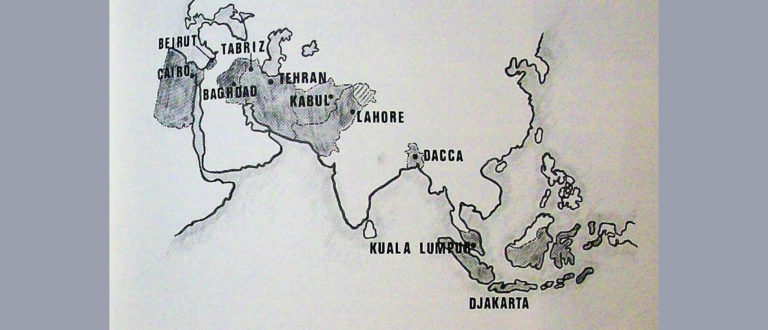
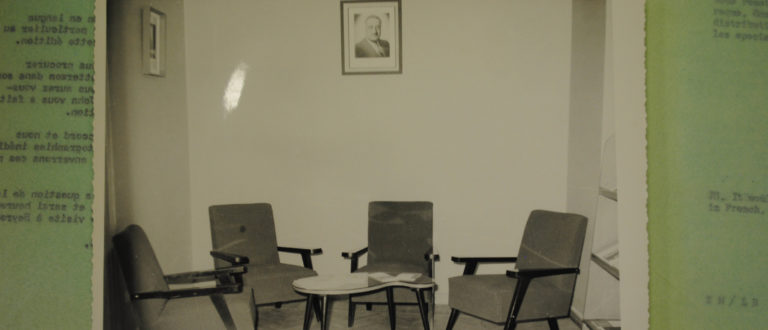
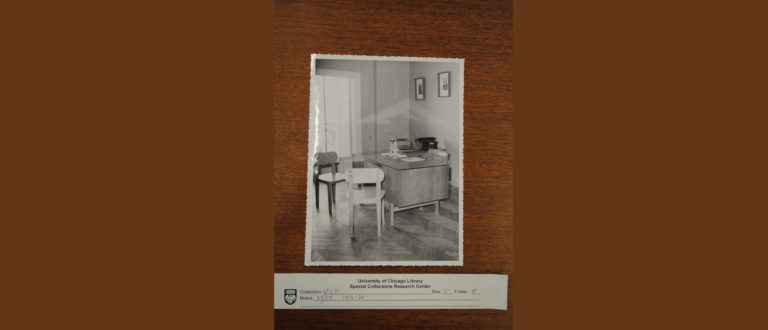
Please RSVP below for this online event.
Discover how America used publishing for political agitation in the Cold War through the Congress for Cultural Freedom (CCF) and Franklin Book Programs, and how anti colonial cultural networks including the Afro-Asian Writers Association were formed. In the current exhibition Fehras Publishing Practices explore the CCF’s archive and the organisation’s operations in the current exhibition and other forms of covert cultural diplomacy. This event brings together three speakers, Nida Ghouse, Esmaeil Haddadian-Moghaddam and Elizabeth M. Holt who are researching archives and figures of the CCF, the Franklin Book Programs and Lotus magazine. They will reflect on the influence and decline of these transnational networks of publishing and translating. The discussion is moderated by Fehras Publishing Practices.
The Congress for Cultural Freedom was an anti-communist cultural organisation later discovered to have been funded by the CIA. The Congress for Cultural Freedom, founded in 1950 in Berlin created networks by planning conferences and launching cultural magazines internationally. The CCF opened its first office in Beirut in 1954, followed by a Cairo office in 1959. These two offices formed the headquarters for its work in the region and the locations from which one of the most important projects in the Arab region was produced: the cultural magazine Hiwar (Dialogue).
The Afro-Asian Writers Association (AAWA) was launched in Tashkent in 1958 with support from the participating countries of the 1955 Bandung Conference and other recently independent African and Asian states. The anti-colonial association called support for publishing in African and Asian countries and as a result launched Lotus magazine in Cairo in 1968.
The Franklin Book Programs was founded in New York as a non-profit organisation which promoted American literature Africa, Asia, the Arab world and Latin America. From 1952 to 1978 it promoted American culture by distributing books in Asia, parts of the Arab world, Africa and Latin America. This included the funding of translations and publication of mainly English books into other languages.
Further reading
Lotus Notes by Nida Ghouse
The cultural Cold War in the Middle East : William Faulkner and Franklin Book Programs by Esmaeil Haddadian-Moghaddam
The Cultural Cold War and the Circulation of World Literature in: Journal of World Literature Volume 1 Issue 3 (2016) by Esmaeil Haddadian-Moghaddam
Resistance Literature and Occupied Palestine in Cold War Beirut in Journal of Palestine Studies Vol.50 No. 1 Autumn 2021 by Elizabeth M. Holt
About the speakers
Nida Ghouse is a writer and curator. Her ongoing writing project Lotus Notes has appeared variously in Mada Masr (Cairo 2014), After Year Zero (University of Chicago Press 2015), ARTMargins (MIT Press 2016), and Critical Writing Ensembles (Mousse Publishing 2016). Previously, she co-curated Parapolitics: Cultural Freedom and the Cold War (2017), also at Haus der Kulturen der Welt, and co-edited its eponymous publication (Sternberg Press, 2021). It includes her essay Charged Objects of Former Reverence. More about Nida Ghouse
Esmaeil Haddadian-Moghaddam is a Marie Sklodowska-Curie Actions research fellow at Universiteit Leiden. He has recently co-edited a special issue (Translation and Interpreting Studies) on translation and the Cultural Cold War where he also explores the story of William Faulkner’s introduction into the Middle East through the work of Franklin Book programs. He is one of the founders and managing editors of the Journal of World Literature. His current project examines the dynamics, legacy and impact of the cultural Cold War in the Middle East through the Franklin operations. More about Esmaeil Haddadian-Moghaddam
Elizabeth M. Holt is Associate Professor of Arabic in the Division of Languages and Literatures at Bard, and her teaching interests include literary theory; and comparative and world literature courses focused on the Cold War, global modernism, and the global diffusion of ideas about Arabic books. Elizabeth is presently completing the book Imperious Plots: Cultural Infiltration and Arabic Literature in the Cold War, a study of the Arabic literary and media activities of the CIA’s Paris-based Congress for Cultural Freedom (CCF) and the Afro-Asian Writers Association (AAWA). More about Elizabeth M. Holt
Fehras Publishing Practices (Sami Rustom, Omar Nicolas and Kenan Darwich) is an artist collective founded in 2015 in Berlin. It researches the history and presence of publishing and its entanglement in the socio-political and cultural sphere in the Eastern Mediterranean, North Africa and the Arab diaspora. It observes publishing as a possibility for creating, and accumulating knowledge and initiate projects in different formats such as installations, films, publications, lectures and performances aiming to extend the notion of publishing. More about Fehras Publishing Practices
Image 1: Lotus Notes, published in Art Margins. Courtesy of Nida Ghouse.
Image 2: Books published with the support of Franklin field office in Tehran, Iran. Research on Franklyn Book Programs, Library of Congress, Washington D.C. Courtesy of Esmaeil Haddadian-Moghaddam.
Image 3: Franklin Book Programs. Research project Cold Books in Hot Lands: Winning and Losing of Hearts and Minds in the Middle East. Courtesy of Esmaeil Haddadian-Moghaddam.
Image 4: Cairo offices of the CCF, found in Box 127 folder 5, IACF archive. Photograph by Elizabeth M. Holt. Holder of the print photographs: Hanna Holborn Gray Special Collections Research Center, University of Chicago Library.
Image 5: Cairo offices of the CCF, found in Box 127 folder 5, IACF archive. Photograph by Elizabeth M. Holt. Holder of the print photographs: Hanna Holborn Gray Special Collections Research Center, University of Chicago Library.